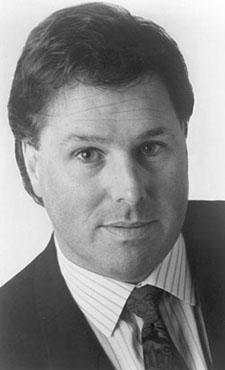Richard Brunner
born 1953 in Ohio
Richard Brunner was a US tenor of German parents. He started his career in the mid-1970s in the USA as a lyrical tenor (Ramiro
in Philadelphia 1978, or Gérald, for example). Success was limited, and so he switched to comprimario parts, and had his
breakthrough as Mime in Rheingold in 1981 at the Cincinnati Opera. He sang the same part in Dallas the following year, which led
to a closer association with the Dallas opera house. He also sang in Milwaukee, New Orleans, Pittsburgh, Newark or
with the Michigan Opera.
Later in the 1980s, he arrived in Europe, where he ventured into the dramatic repertory, and soon returned to main roles: Froh
(1987/88 season, both in Nice and at the Théâtre Châtelet in Paris), Števa Burja (Spoleto Festival,
1988), German (in Trieste, 1988, in St. Gallen and even in Kazan), José (Graz, 1990), Florestan (Glasgow, 1991;
Braunschweig), Stolzing (Denver, 1992), Tannhäuser (Hagen, Braunschweig), Erik (Braunschweig, Bremen, Washington), Apollo
in Daphne (Strasbourg), Bacchus (St. Gallen). From 1989 to 1998,
he regularly sang small roles at the Bayreuth Festival (one of the Knights in Parsifal, Walther von der Vogelweide, Froh).
From 1991 to 1998, he was a member of the Vienna Staatsoper, where he sang almost only small or medium parts (Cassio,
Narraboth). In Vienna and in Graz, I heard him several times, and found him very unsatisfactory, he voice was narrow, and he
seemed constantly overstressed. After his time at the Vienna Staatsoper, he was in Darmstadt, Karlsruhe (Paul in Die tote Stadt),
Frankfurt (Erik), and Berlin (Hoffmann at the Komische Oper). Finally, he settled in Leipzig and sang a lot in Halle an der
Saale (Erik, Calaf, Barbe-Bleue), which is a small provincial theater and may have been the right kind of place for him.
Reference 1: Kutsch & Riemens, reference 2
In RA format
His interpretation here, is quite appropriate, though unintentionally –
he is sounding exactly like the wimp that José actually is, as opposed to his fierce Carmen.
|
